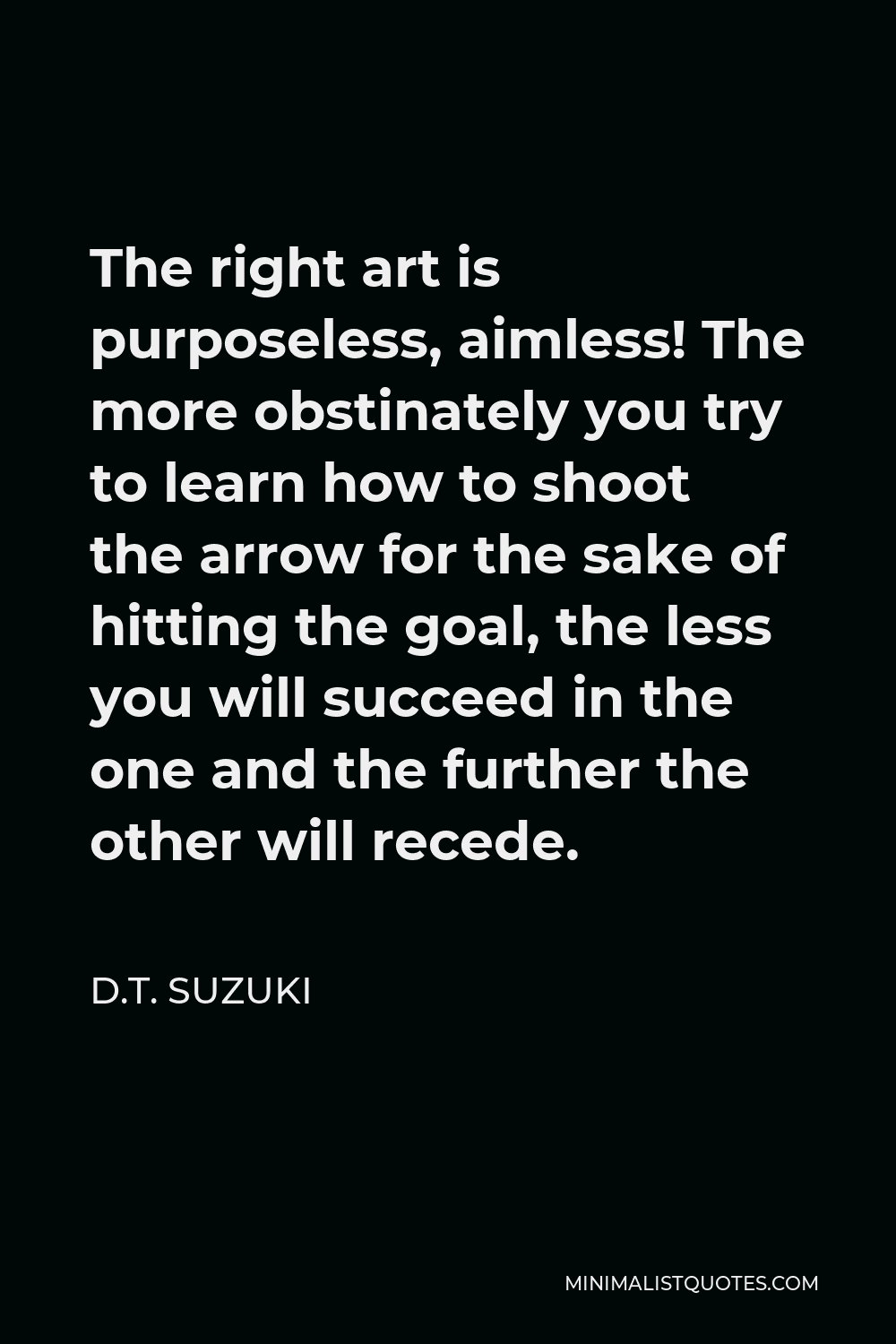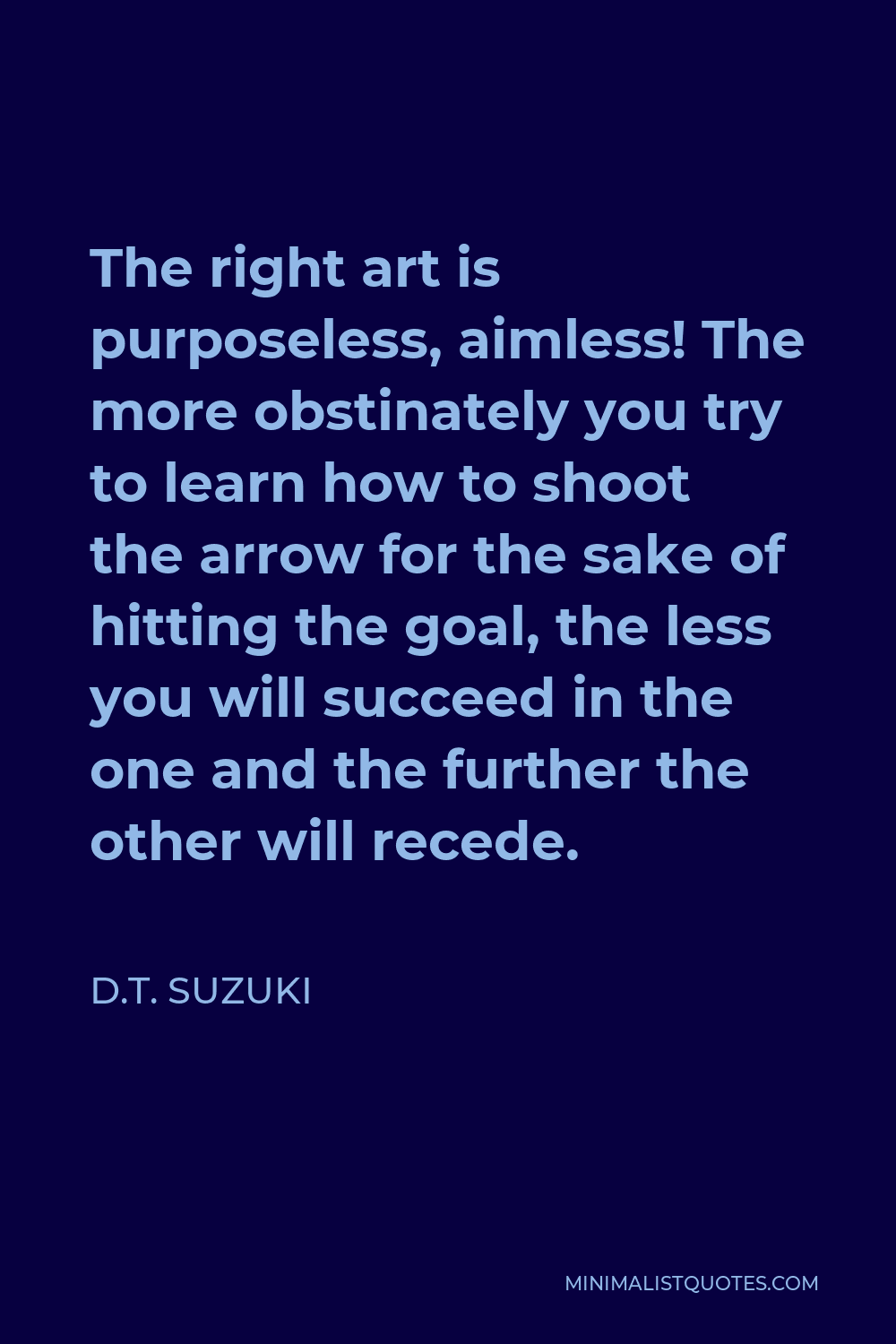Enlightenment is like everyday consciousness but two inches above the ground.
D.T. SUZUKIThe right art is purposeless, aimless! The more obstinately you try to learn how to shoot the arrow for the sake of hitting the goal, the less you will succeed in the one and the further the other will recede.
More D.T. Suzuki Quotes
-





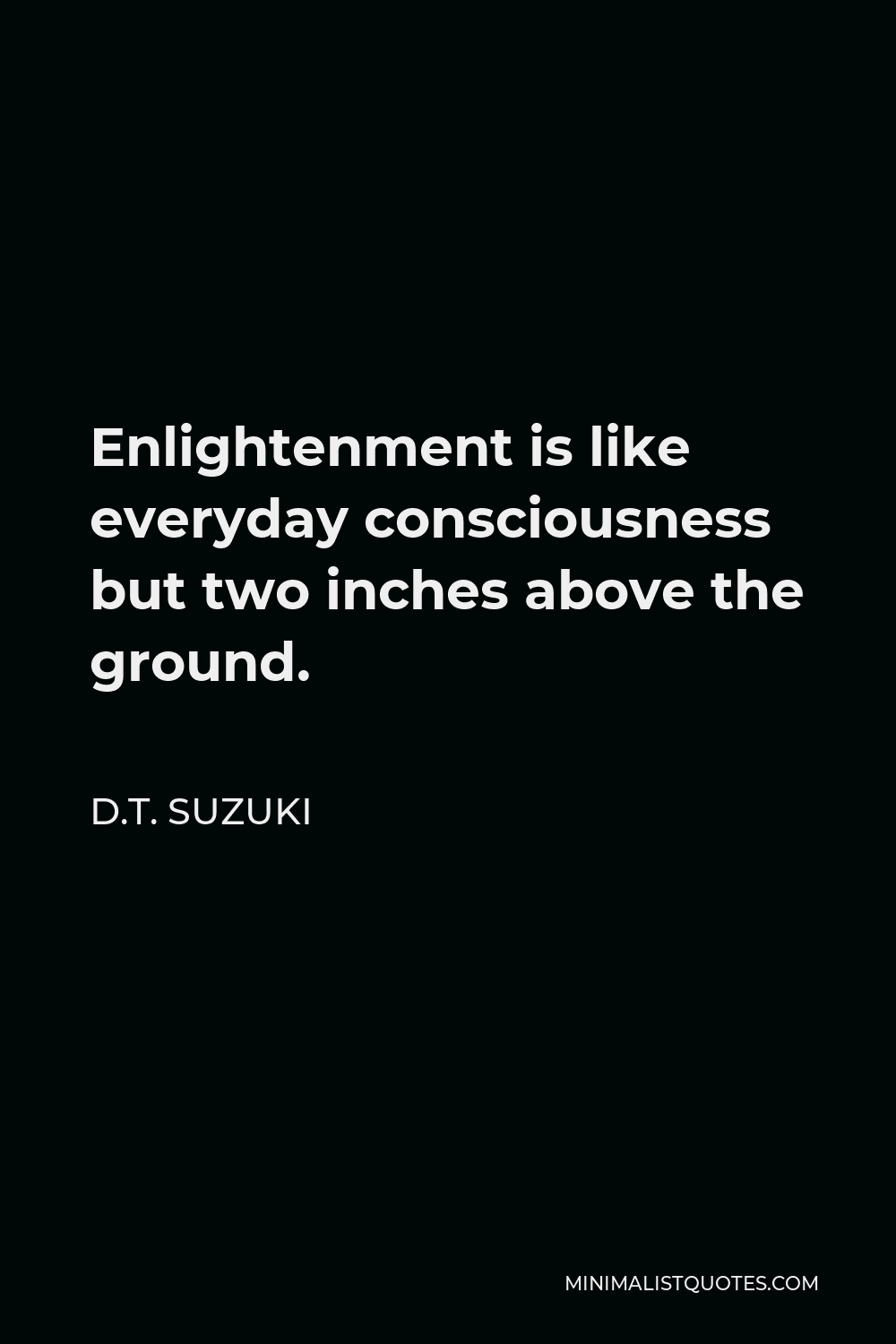
-





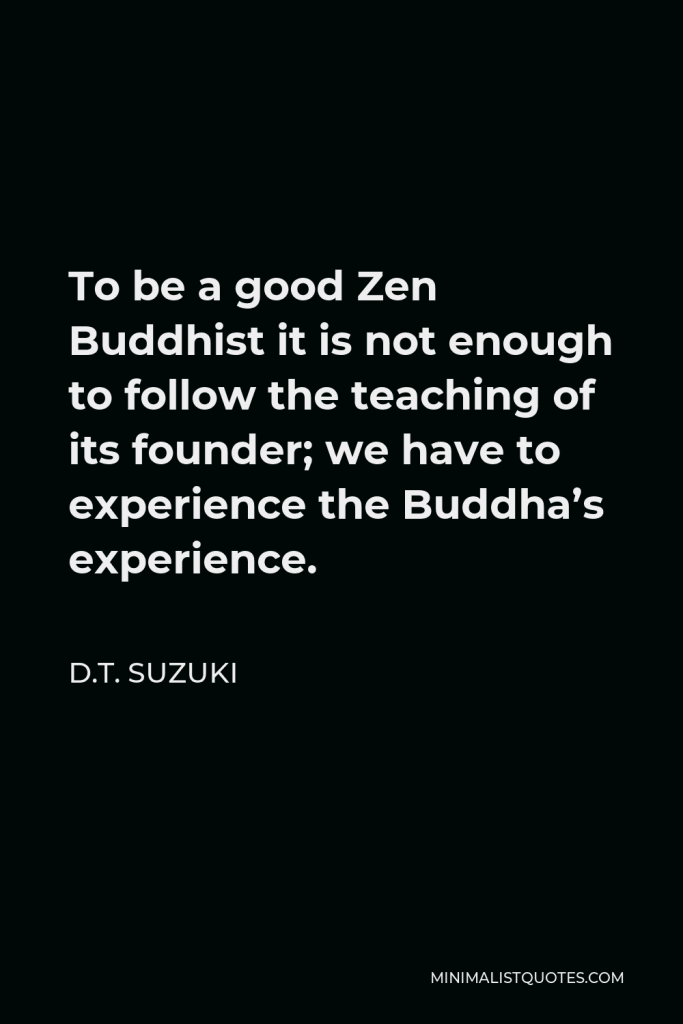

To be a good Zen Buddhist it is not enough to follow the teaching of its founder; we have to experience the Buddha’s experience.
D.T. SUZUKI -





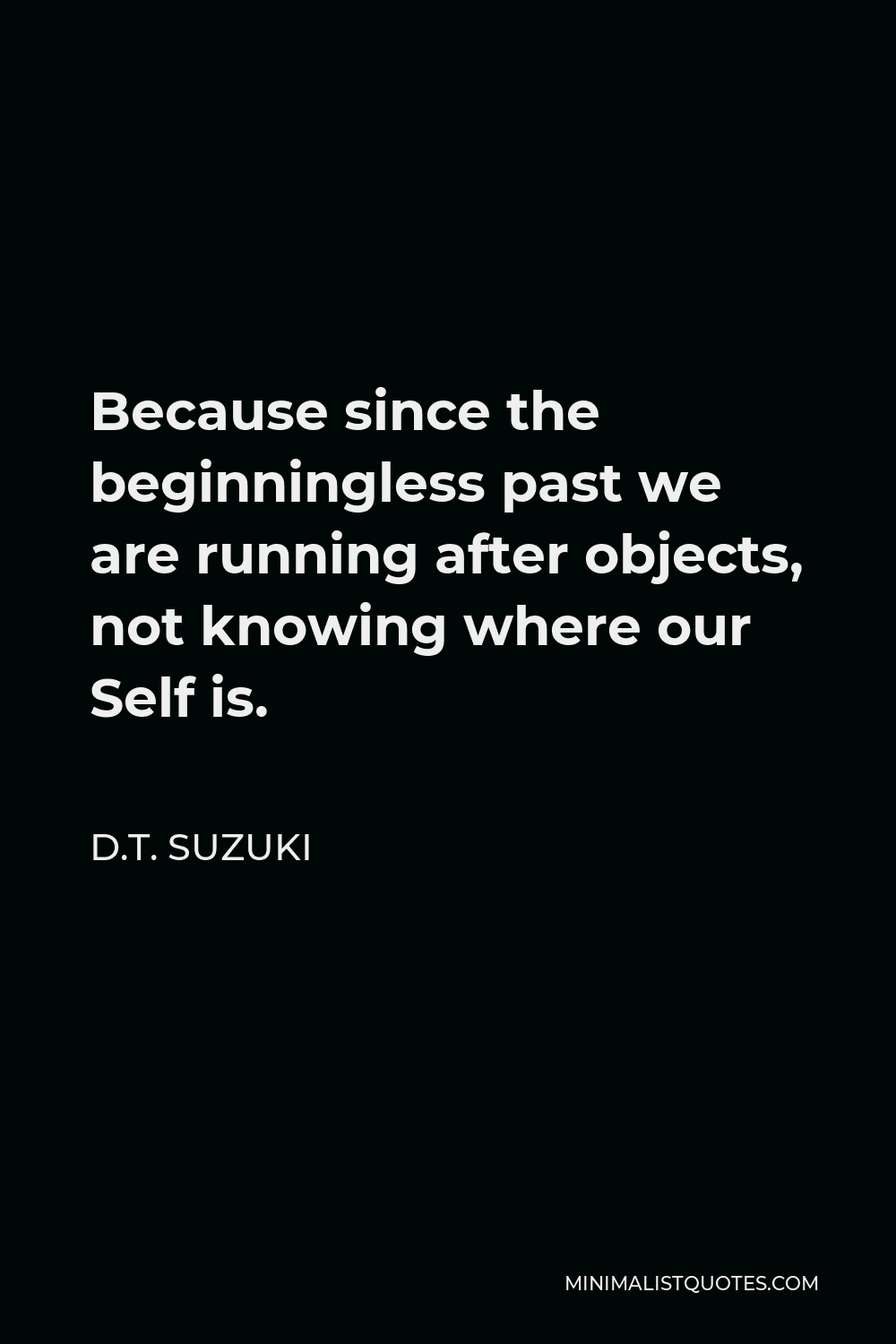
Because since the beginningless past we are running after objects, not knowing where our Self is.
D.T. SUZUKI -





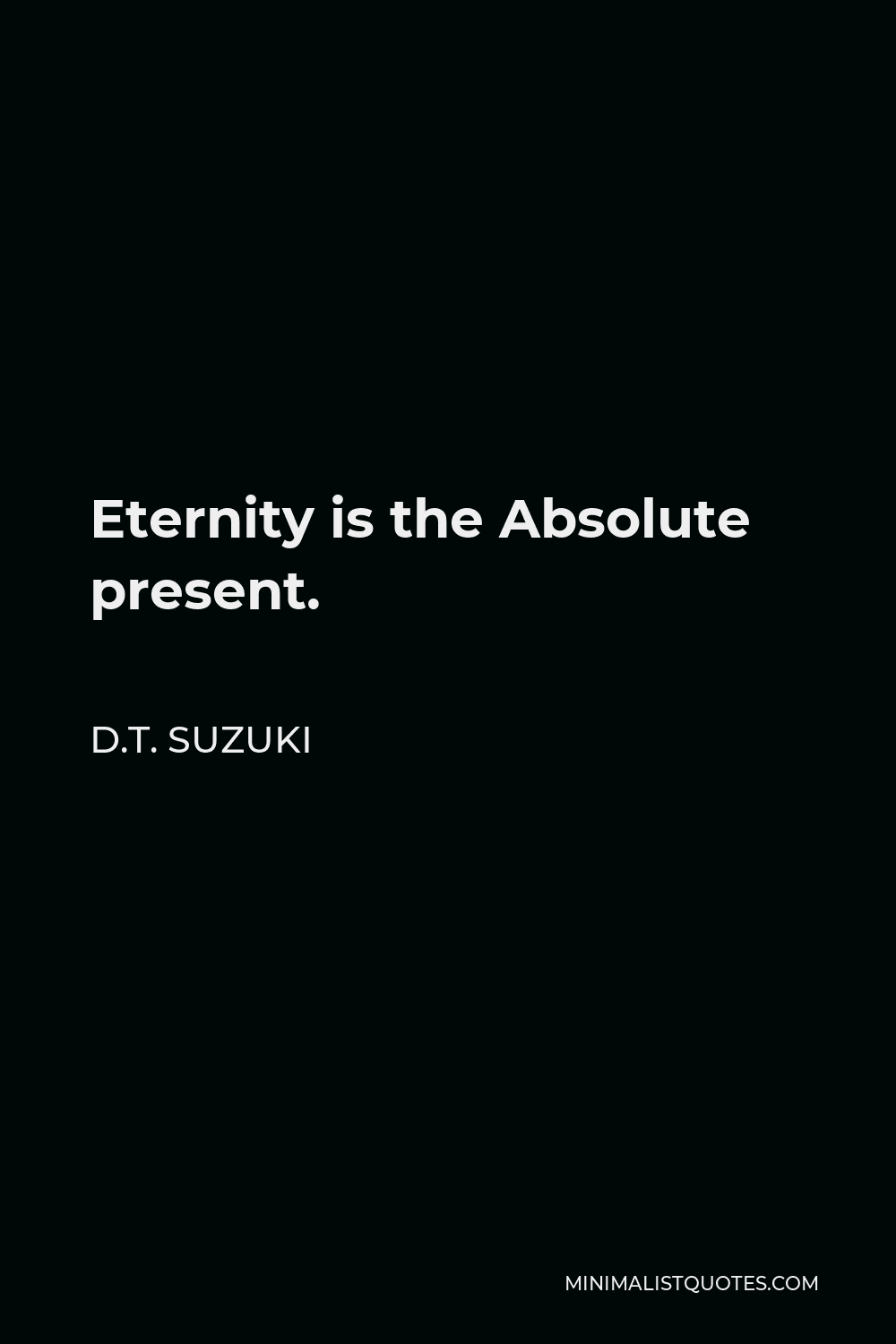
Eternity is the Absolute present.
D.T. SUZUKI -





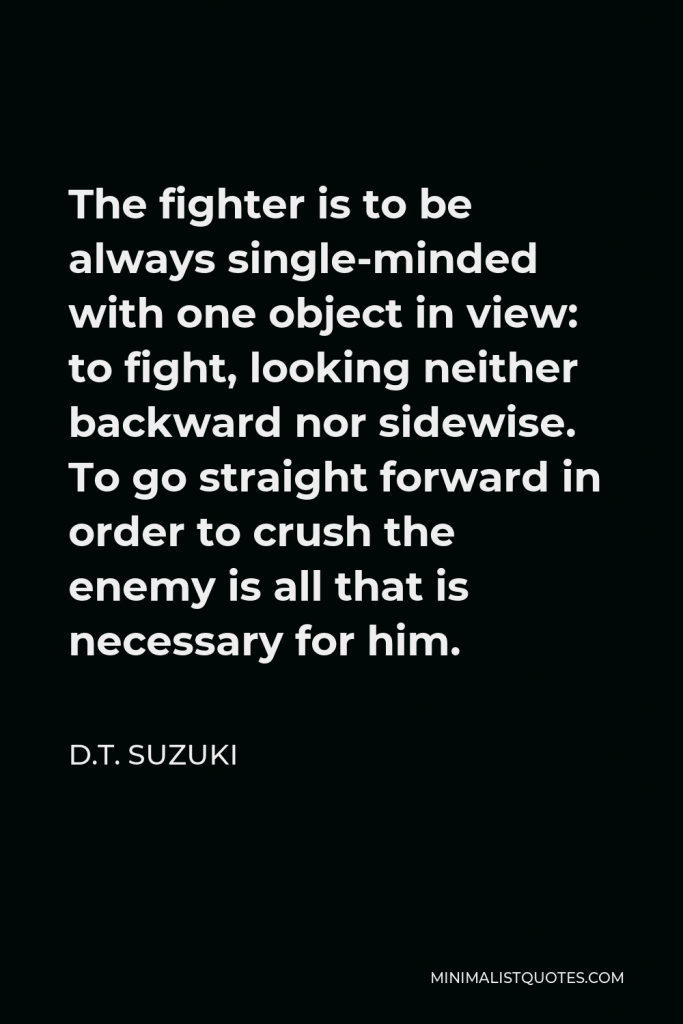

The fighter is to be always single-minded with one object in view: to fight, looking neither backward nor sidewise. To go straight forward in order to crush the enemy is all that is necessary for him.
D.T. SUZUKI -





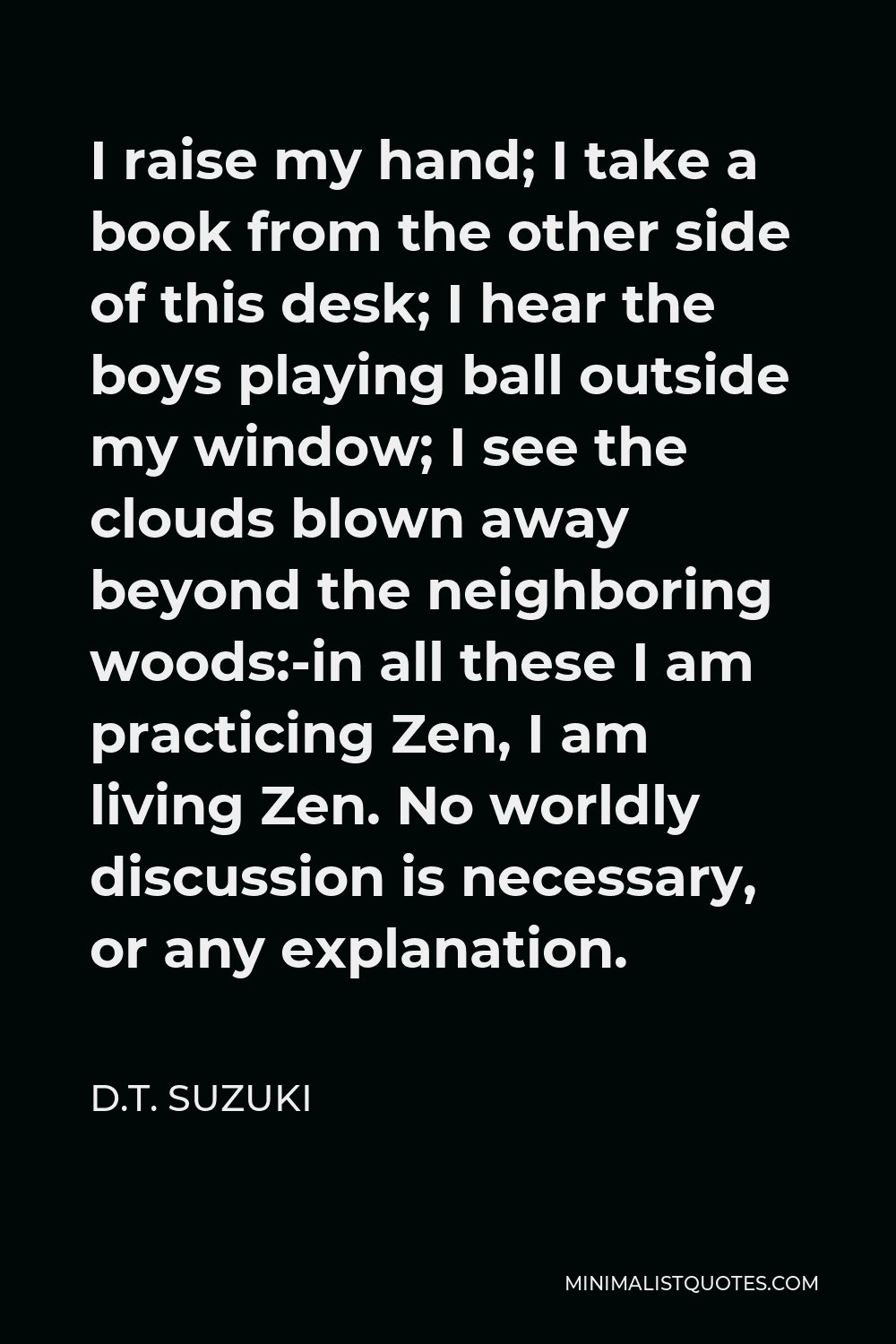
I raise my hand; I take a book from the other side of this desk; I hear the boys playing ball outside my window; I see the clouds blown away beyond the neighboring woods:-in all these I am practicing Zen, I am living Zen. No worldly discussion is necessary, or any explanation.
D.T. SUZUKI -





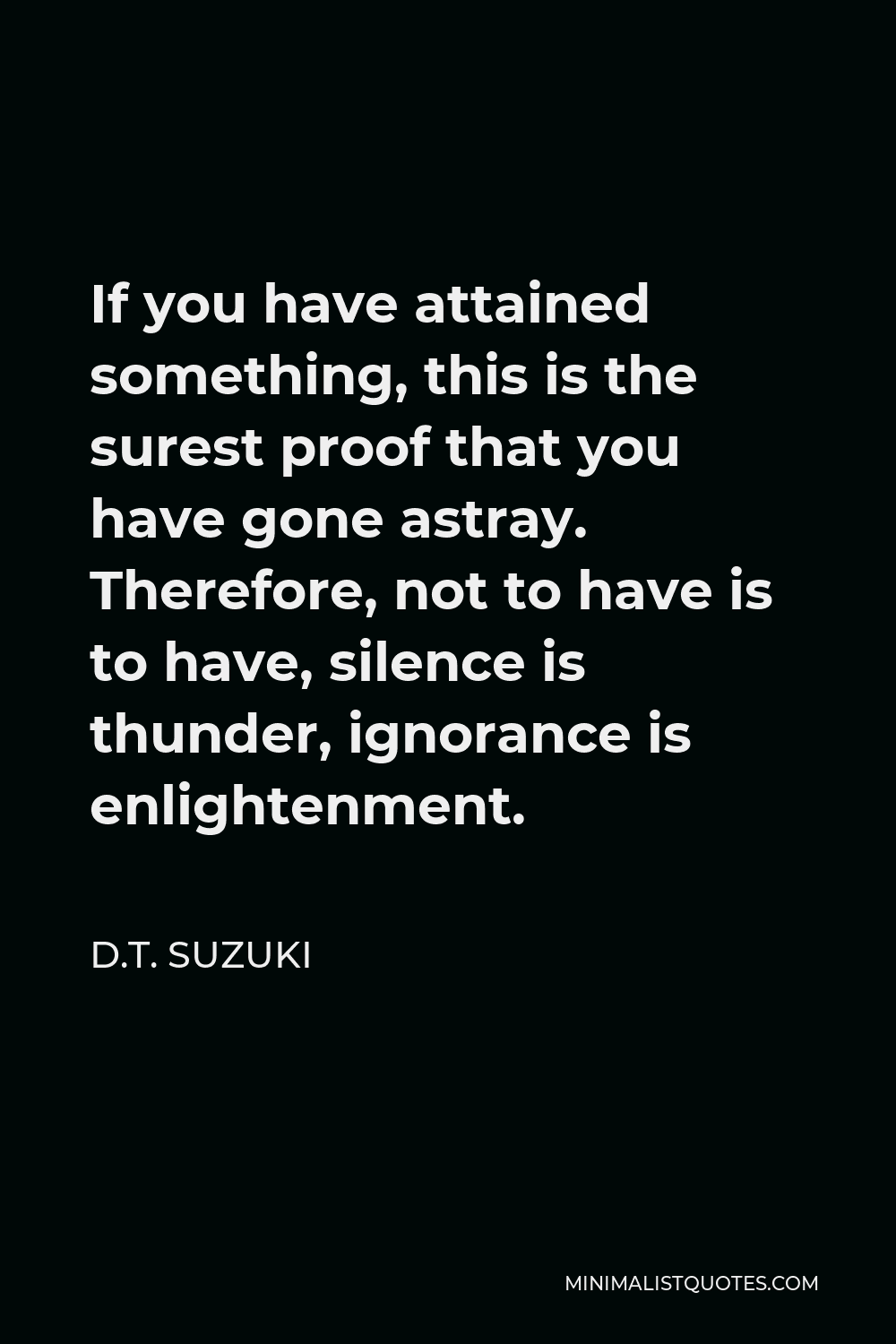
If you have attained something, this is the surest proof that you have gone astray. Therefore, not to have is to have, silence is thunder, ignorance is enlightenment.
D.T. SUZUKI -





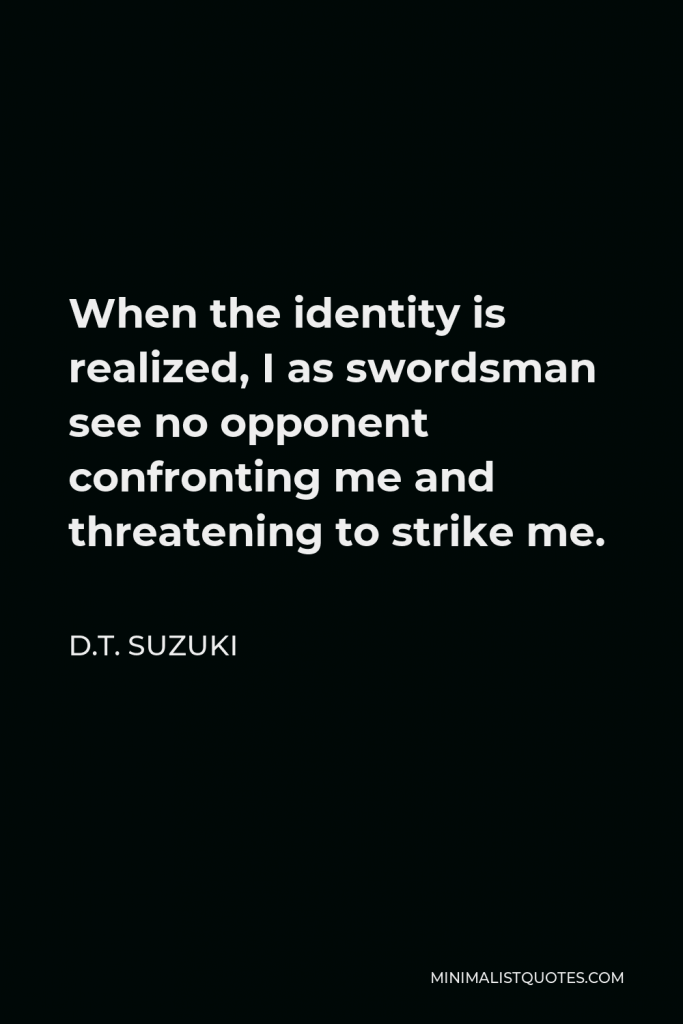

When the identity is realized, I as swordsman see no opponent confronting me and threatening to strike me.
D.T. SUZUKI -






The claim of the Zen followers that they are transmitting the essence of Buddhism is based on their belief that Zen takes hold of the enlivening spirit of the Buddha, stripped of all its historical and doctrinal garments.
D.T. SUZUKI -





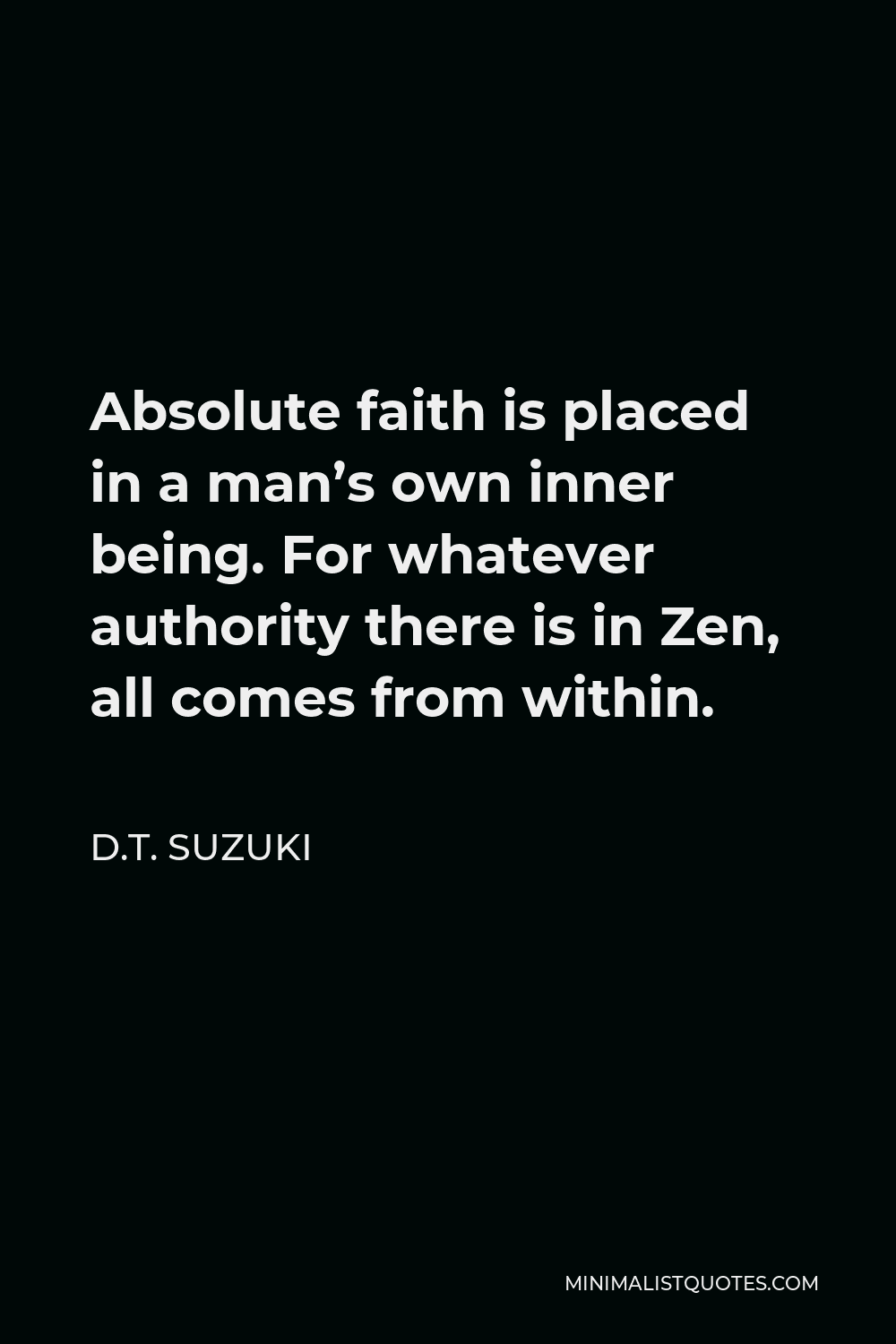
Absolute faith is placed in a man’s own inner being. For whatever authority there is in Zen, all comes from within.
D.T. SUZUKI -





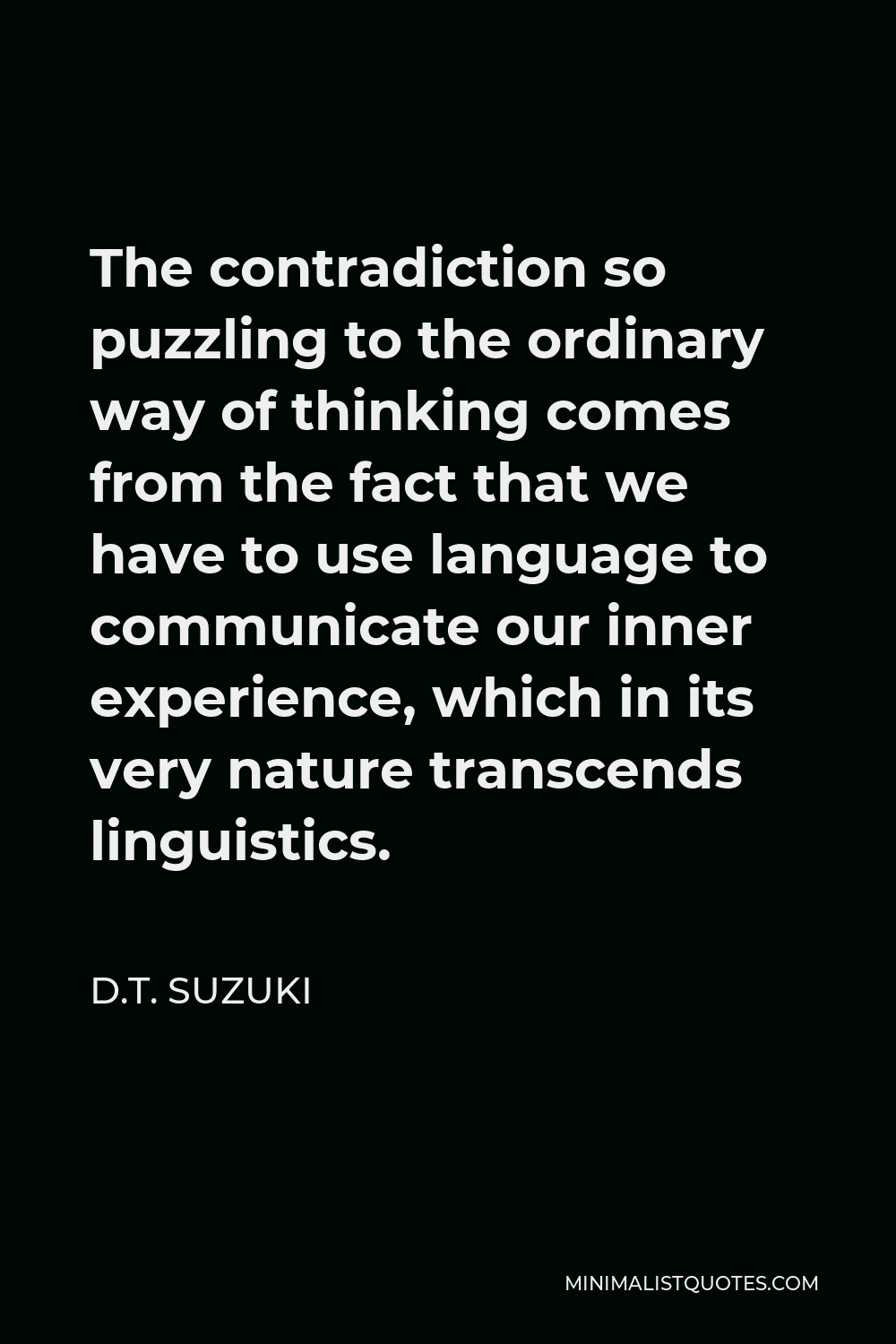
The contradiction so puzzling to the ordinary way of thinking comes from the fact that we have to use language to communicate our inner experience, which in its very nature transcends linguistics.
D.T. SUZUKI -





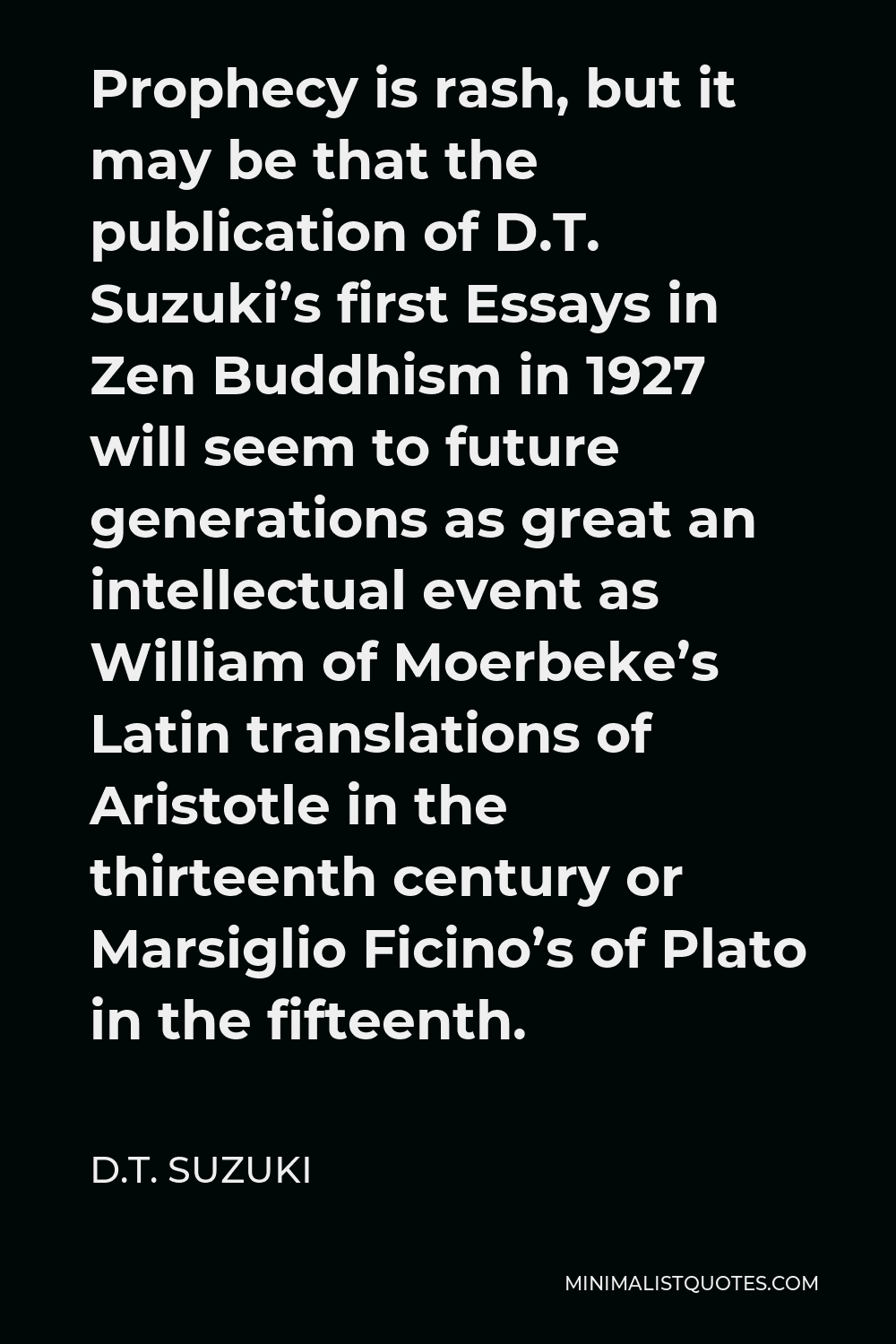
Prophecy is rash, but it may be that the publication of D.T. Suzuki’s first Essays in Zen Buddhism in 1927 will seem to future generations as great an intellectual event as William of Moerbeke’s Latin translations of Aristotle in the thirteenth century or Marsiglio Ficino’s of Plato in the fifteenth.
D.T. SUZUKI -





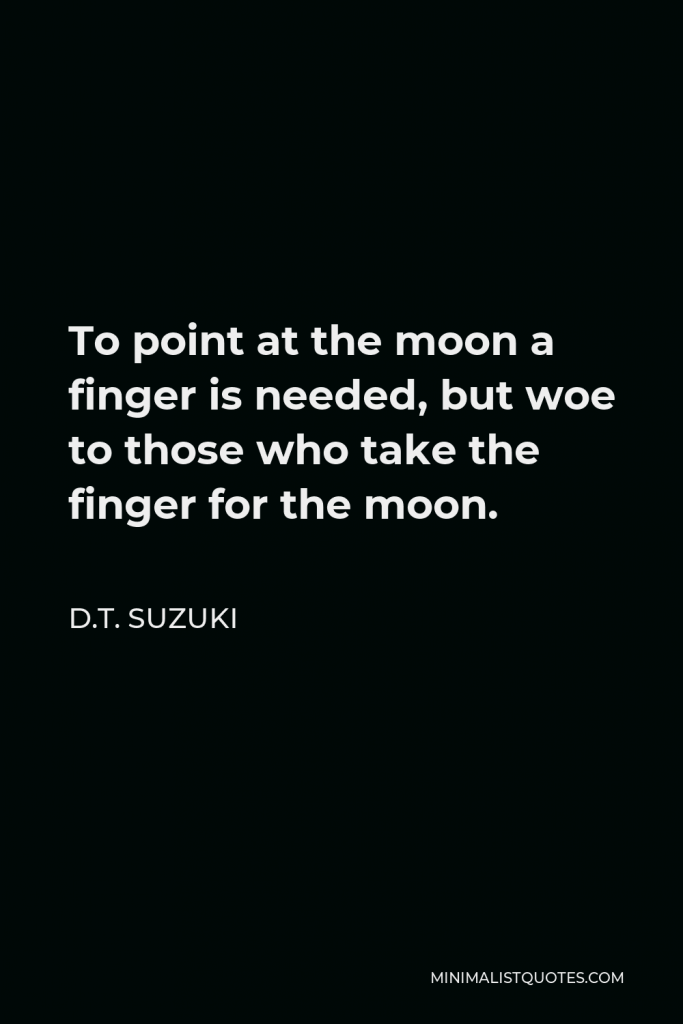

To point at the moon a finger is needed, but woe to those who take the finger for the moon.
D.T. SUZUKI -





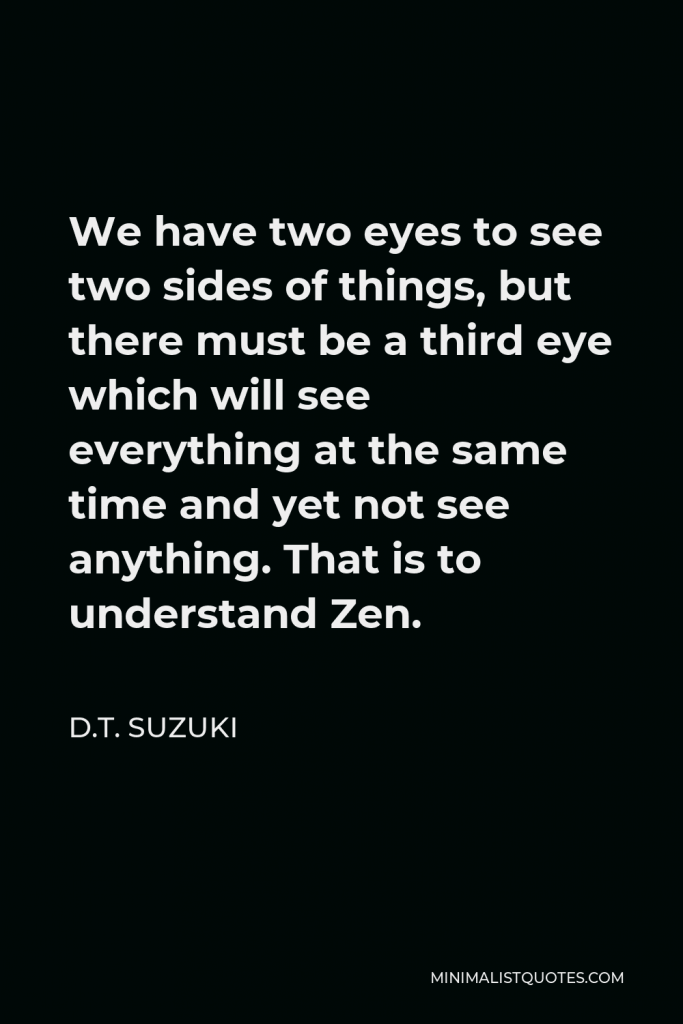

We have two eyes to see two sides of things, but there must be a third eye which will see everything at the same time and yet not see anything. That is to understand Zen.
D.T. SUZUKI -





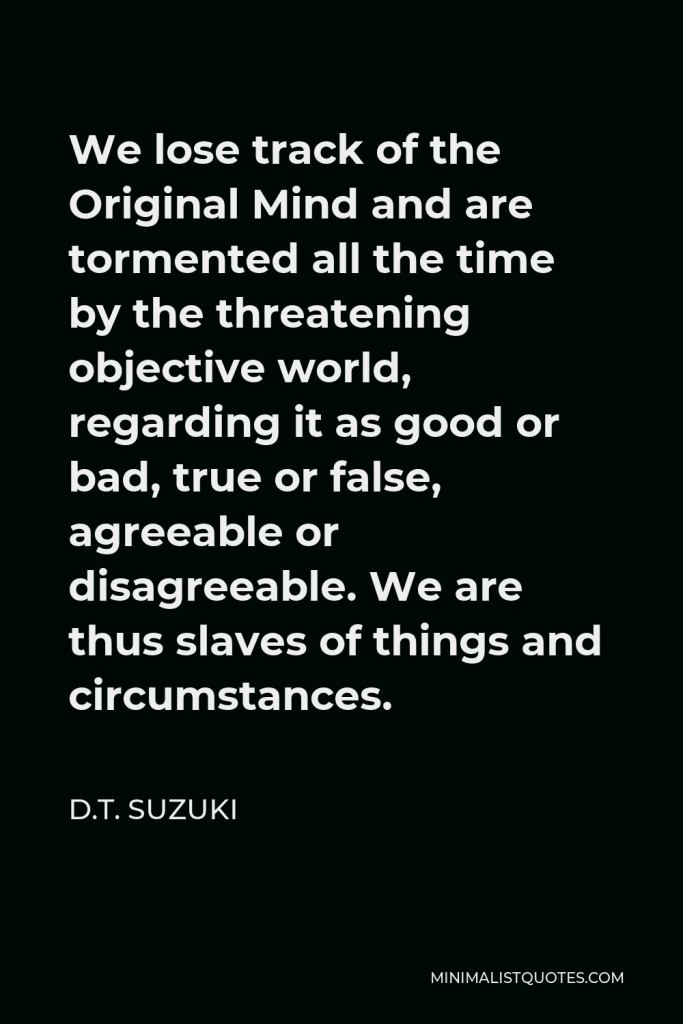

We lose track of the Original Mind and are tormented all the time by the threatening objective world, regarding it as good or bad, true or false, agreeable or disagreeable. We are thus slaves of things and circumstances.
D.T. SUZUKI -





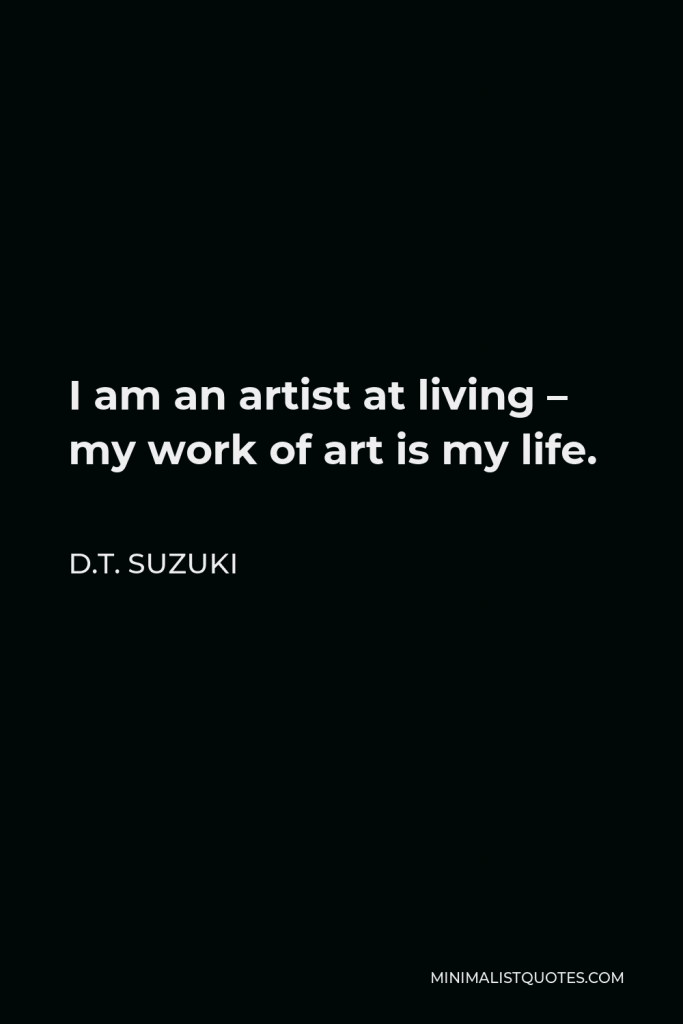

I am an artist at living – my work of art is my life.
D.T. SUZUKI
